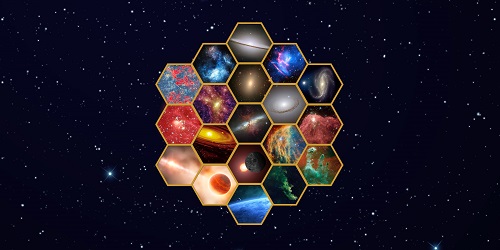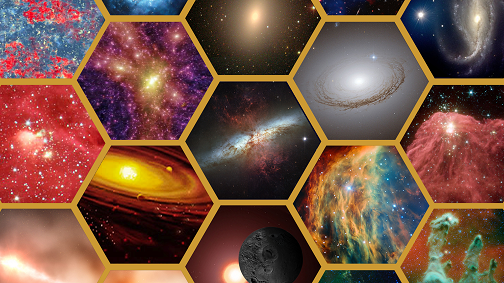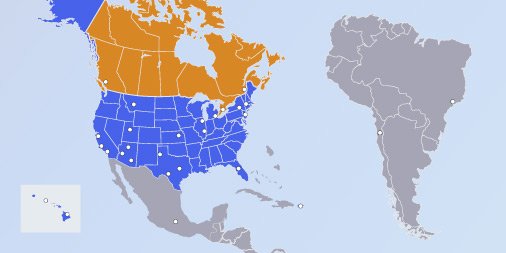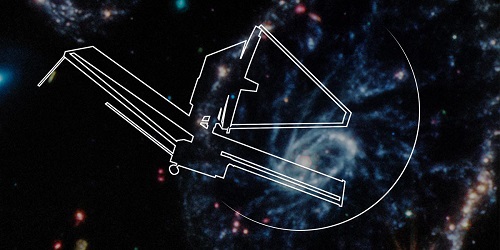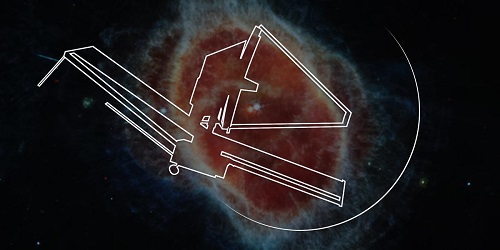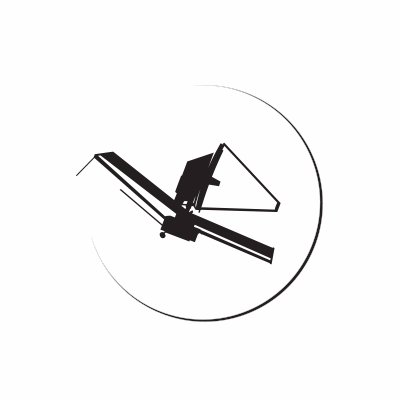
JWST Observer
@JWSTObserver
Followers
18K
Following
192
Media
396
Statuses
981
JWST Observer is managed by STScI and provides astronomers with the most up-to-date information, news, and events related to observing with JWST.
L2
Joined January 2012
Beginning today, #JWST short-range schedules will be available every Friday for the following week's observations. The observing plan for the week of July 11, 2022 is now available:
1
71
381
#JWST data — including data from the First Images, Cycle 1 science programs, and commissioning — will be made available at MAST in stages beginning on July 13, 2022 at 11 a.m. (EDT). Get the details:
1
58
289
The #JWST Cycle 1 General Observer Program selections have been made. Thanks to all involved who helped us prepare for the first year of JWST science. Get the details:
2
43
186
We received at least 1170 proposals in response to the #JWST Cycle 1 Call for Proposals. We are thankful to the community for their dedication to JWST science! Read the news:
2
36
165
The Mikulski Archive for Space Telescopes has started releasing the science data used to create #JWST's First Images. Learn how to download it here:
1
24
88
The #JWST Cycle 3 General Observer Program selections have been made. Find out what JWST will observe in its third year of science:
0
23
89
The #JWST Cycle 2 General Observers proposal schedule has been confirmed. Make sure to add these dates to your calendar:
1
23
77
The new #JWST Cycle 1 General Observer proposal deadline will be November 24, 2020 at 8:00 p.m. Eastern Time. For more information about the science timeline, see
0
40
78
STScI, NASA, ESA, and CSA have released an important message concerning the impact of the novel coronavirus on the #JWST Cycle 1 deadline. For more information:
3
37
74
The Cycle 1 call for proposals for #JWST general observer time has been released. Up to 6,000 hours will be available in this cycle for a wide variety of proposals. Learn more:
1
49
73
The #JWST Cycle 1 Call for Proposals is open again, with up to 6,000 hours available for General Observers. Multiple categories of proposals are offered, based on program size and other criteria, for both GO and Archival Research. Get all the details:
2
33
61
STScI received 1,931 proposals for #JWST Cycle 3 – a world record – requesting almost 48,800 hours of observing time. Get more proposal submission statistics:
0
13
58
The #JWST Cycle 3 Call for Proposals for General Observer (GO) time has been released. Get the details:
0
22
55
The finalized #JWST Cycle 1 proposal schedule has been released. Make sure to mark your calendars with the relevant dates! Learn more:
3
35
57
#JWST will use Director’s Discretionary Time to conduct a concerted search for atmospheres in more than a dozen nearby M-dwarf systems. Read more:
0
20
59
To prepare for science operations with #JWST, the science observation schedule has been communicated to the principal investigators who have approved programs in Cycle 1. Here are some FAQs about the science scheduling of the observatory:
0
6
50
Join us on January 28 from 12-1:30 pm (EST) for a special #JWST Town Hall. Speakers from NASA, GSFC, and STScI will update the community on the mission's status, in addition to other topics. Get the details:
0
14
39
Remember to join us via live stream for the First Science Results from #JWST Conference on December 12-14, if you could not make it in person. Get the details:
2
9
38
From December 12-14, scientists will present some of the very first results from #JWST at a conference being held at the Space Telescope Science Institute. While registration has closed, the talks will be live streamed on YouTube. See the conference website to view the schedule.
3
13
38
STScI received 1,602 proposals for #JWST Cycle 2 – a record number – requesting almost 36,500 hours of observing time. Get more proposal submission statistics:
1
11
37
Submit your poster abstracts by May 17 for transiting exoplanet observation planning with #JWST.
0
14
34
Given the delay in the #JWST Cycle 1 deadline, GTO & ERS teams now have additional time to submit final revisions of their programs. As a result, GOs should make their final duplication checks after May 4, 2020. See the updated news:
0
12
32
A series of issues recently triggered a pause in #JWST science observations. Get the details:
0
7
26
The selections for the #JWST DD-ERS programs have been made. The 13 programs include 253 investigators from 18 countries. Review the abstracts of the selected programs to learn more.
0
17
29
Final preparations are underway to begin observing certain #JWST Cycle 1 science programs. Some PIs may be contacted to make small adjustments to their programs. Read more:
1
4
26
Read the #JWST MIRI MRS update on a careful study of the impact the measured MIRI MRS decrease count rate has on science data, as well as on the upcoming pipeline mitigation:
0
15
25
To help prepare for science with #JWST, we’ve made available high-quality, simulated data sets covering a variety of astronomical sources and observing modes. Check them out:
1
7
26
Simulated, large, monochromatic #JWST point spread functions (PSFs) with scattered light generated using the WebbPSF tool are now available for download. Read more:
2
3
26
#JWST's NIRCam now allows for simultaneous coronagraph imaging in both short and long wavelengths. Get the details on this new capability:
0
4
24
Registration is now open for the newly-added 17th #JWST JWebbinar training event entitled "MAST: Retrieving and Downloading Data". Find out more:
0
8
25
April 6th will be here before you know it! We want to make sure you have all the information you need to prepare your #JWST Cycle 1 proposal, including technical requirements and science policies. Get the details here:
1
20
24
Not all #JWST data has been processed by the latest pipeline. Check your data's pedigree and include that information in your publications. Learn more:
0
5
21
The new version of #JWST's NIRSpec Observation Visualization Tool (NOVT) is available. Improvements include easier installation and Imviz functionality. Read more:
0
9
24
Want to observe with #JWST? Register by April 14 to attend the Proposal Planning Workshop on May 15-18.
0
20
22
Planning on attending the 53rd Meeting of the AAS Division for Planetary Sciences? Don't miss the STScI Town Hall, which will include a #JWST mission update. You’ll also hear about community volunteer opportunities with JWST. Read more:.
0
7
23
Thinking of submitting a #JWST Cycle 2 proposal related to exoplanet direct imaging and spectroscopy? If so, please check out the recommendations for data collection "best practices" from the JWST ERS 1386 team posted on astro-ph:
0
5
21
#JWST commissioning data will be publicly available a couple of days after the first images are released on July 12, 2022. Read more:
2
5
22
Calibration data reveals a reduced count rate in the long-wavelength filters of #JWST's MIRI Imager. Get the details:
1
4
21
Mark your calendars for the special #JWST Town Hall on Friday, January 28 from 12-1:30 pm (EST). Speakers from NASA, GSFC, and STScI will provide mission status updates for the community. Get the details:
0
4
21
Are you a future #JWST Observer? Join STScI for the first JWST Master Class in November and learn all there is to know about our proposal planning tools and help others get ready for science with JWST. Get the details about the class and how to apply:
0
9
21
The STScI Interim Director, Nancy Levenson, continues focusing on large, community projects with #JWST Director's Discretionary time. Get the details:
1
5
19
MAST has started to release the #JWST commissioning data. AWS bulk download scripts are available to retrieve much of the data immediately. Get the details, including a link to highlighted commissioning programs:
1
10
20
The opportunity to propose for #JWST Director's Discretionary Time is now available. Get the details:
1
11
21
Starting in the spring, STScI will be offering a series of virtual training events, called JWebbinars, to prepare the community for data reduction and analysis with #JWST. Read more:
0
8
18
Registration is now open for the 15th #JWST JWebbinar data analysis training event entitled "PDRs4all: Simulate NIRCam Observations of an Extended Source". This is the third of 4 Community JWebbinars led by ERS teams. Find out more:
1
10
20
STScI will be hosting the inaugural #JWST Master Class during the week of November 18. The plenary sessions, taking place on Monday, will be live-streamed to anyone who is interested in learning more about JWST proposal planning. Read more:
0
17
19
Don’t miss the first #JWST Master Class, a “train-the-trainer”-style workshop for JWST proposal planning. The goal of the class is to help develop local experts throughout the observer community. The registration deadline is June 3, 2019. Learn more:
0
11
20
The #JWST Town Hall at #AAS242, starting today at 6:30 pm (MDT), will feature speakers from the JWST Project at NASA’s GSFC & STScI. Topics include a project update, the Cycle 2 selection process & Cycle 3 timeline, the public outreach process, and more. @AAS_Office
1
2
17
#JWST ETC 1.2 released for GO Cycle 1 proposals!! Includes normalization of extended sources in surface brightness units, WATA for NIRSpec, better PSF handling for Coronagraphy, improved accuracy, and UI enhancements. Details:
1
10
19
Registration for the fourth #JWST JWebbinar data analysis training event entitled “Pipeline: Spectroscopic Mode” is now open. Read more:
0
6
20
An improved correction to the MIRI imager long-wavelength count rate loss issue is now available in the latest version of the #JWST Calibration Pipeline. This new correction replaces the one provided in September 2023. Read more:
0
6
20
More detailed #JWST Cycle 1 submission statistics are now available. The worldwide community requested more than 24,500 hours compared to 6,000 hours available to General Observers. Read more:
0
5
17
Using MIRI for your #JWST Cycle 1 science observations? Then you should be aware that STScI has revised the MIRI readout patterns to meet flux accuracy requirements. For details:
0
4
17
Interested in mid-infrared observations with #JWST’s MIRI? Check out MIRISim, a simulation package developed by the MIRI European Consortium to help scientists understand MIRI’s capabilities and plan their own observations. Learn more:
0
13
18
The #JWST Cycle 4 Call for Proposals for General Observer (GO) time has been released. Get the details about the new changes this year:
0
5
17
Version 1.7 of the #JWST Exposure Time Calculator (ETC) is now live! This release features new normalization filters, updated template spectra, bug fixes, and improved consistency with APT. Learn more:
0
4
14
Check out our resources to help you get started on your #JWST Cycle 1 proposal. Find a local proposal planning workshop offered by a Master Class participant. Or, access the Workshop-in-a-Box materials from the Master Class yourself. Learn more:
1
7
17
Mark your calendars! STScI is planning a conference in September 2023 to highlight the first year of science with #JWST. Read more:
0
1
17
#JWST's high res. imaging will be key to finding black holes in other galaxies. Read more at http://t.co/Mimcq35dJg
http://t.co/TGiWcAASIp.
1
11
13
Following a successful launch, the #JWST Users Committee received updates on recent activities and future plans at its recent meeting. The presentations are now available to the community. Read more:
0
3
15
Learn how teams are actively working on improving flux calibrations on #JWST's NIRCam instrument. Get the details:
0
3
16
Wish you could use the #JWST General Target Visibility Tool for moving targets? Well, now you can. The tool has been recently enhanced to allow you to calculate moving target visibility windows as a function of time. Read more:
0
12
13
Registration for the 14th #JWST JWebbinar data analysis training event entitled “Q3D: Fitting Spectra and Data Cubes of Galaxies and Quasars" is now open. This is the second of 4 Community JWebbinars led by ERS teams. Read more:
0
7
13
With Cycle 2 proposals due Jan. 27, we’re kicking off #JWST events at #AAS241 with a JWST Proposal Planning Workshop on Sunday, January 8 from 8:30 am-5 pm (PST). The workshop will provide an overview of proposal & planning tools, with a specific focus on ETC & APT. @AAS_Office
0
3
14
Don’t miss #JWST events at #AAS241 virtually and in person in Seattle, WA from January 8-12. Join us for a proposal planning workshop, a special session, and a splinter session, as well as the @stsci booth and JWST Town Hall. @AAS_Office
0
1
16
Users can now subscribe to mailing lists to be informed about updates to #JWST calibration reference data as these become available for use with the JWST science calibration pipeline. Get the details:
1
7
13
Want to learn about #JWST's in-flight performance from commissioning? Many JDox articles have been updated and the report — Characterization of JWST Science Performance from Commissioning — is now available to read. Get the details:
0
5
16
Registration for the fifth #JWST JWebbinar data analysis training event entitled “MIRI and NIRSpec IFU” is now open. Read more:
0
9
14
With Cycle 3 proposals due on October 27, you don't want to miss the JWST Proposal Planning Workshop at #AAS242 on Sunday, June 4 from 8:30 am-5 pm (MDT). Join us for an overview of proposal and planning tools, specifically ETC and APT. Register now:
2
3
14
Calling all future #JWST Observers in Europe! ESA will offer their JWST Master Class in early February 2020. Applications are due on 3 June 2019. For details:
0
7
14
Registration for the #JWST JWebbinar data analysis training event entitled “Pipeline Information and Data Products” is now open. Read more:
0
4
14
Version 2.0 of the #JWST Exposure Time Calculator (ETC) is now live! This release features accuracy updates based on inflight measurements, simultaneous NIRCam coronagraphic imaging, and workbook folders. Read more:
0
1
13
Have #JWST Cycle 1 proposal questions? Join us on Feb. 26 from 9-10 am ET (2 pm UTC) for a Twitter Q&A session to get the answers. Tweet your questions using #AskJWSTObserver.
1
15
14
Curious how the Early Release Science (ERS) teams are preparing for science with #JWST? Read the latest updates on the activities and deliveries of the PDRs4All, IceAge, GLASS, Q-3D, CEERS, Wolf-Rayet Dust, and Transiting Exoplanet ERS Teams:
0
3
15
Help us celebrate the upcoming launch of #JWST by joining us for the Cycle 1 Science Sampler talks in November. Principal investigators of Cycle 1 GO programs will present the science they’ll tackle with data from the first year of operations. Details:
1
6
14
Apologies, but the links were missing from the previous post. Here's the link to view the YouTube live stream during the #JWST conference: Here's the link to the conference website:
0
5
13
Fly with #JWST a million miles from Earth! Come experience our virtual reality simulation at the STScI Booth at #AAS231 in Washington, D.C. on Jan. 8-11. @stsci @AAS_Office
1
6
14
Registration is now open for the next #JWST JWebbinar – JWST NIRSpec Time-Series Observations: From Uncalibrated Data to Transit Light Curves using CalWebb – to be held on December 14th and/or 15th. Get the details:
1
9
14
The #JWST Cycle 1 Science Sampler videos are now available on YouTube. Get ready for the first year of science by learning from the principal investigators about their specific programs. Read more:
0
4
12
Use MAST's new Discovery Portal feature to check your proposed #JWST targets against those already approved for GTO and ERS programs. Read more:
0
10
13
Registration is now open for the newly-added 16th #JWST JWebbinar training event entitled "JWST Time Series Observations: Performance and Caveats". Find out more:
0
5
12
Updates to reference files for #JWST's MIRI Low-Resolution Spectrometer (LRS) improve the wavelength and photometric calibration, as well as the aperture correction. Read more:
0
3
14
The #JWST Users Committee has released a recommendation to STScI in response to community concerns about the Cycle 1 proposal schedule. For more information, see
0
7
14






